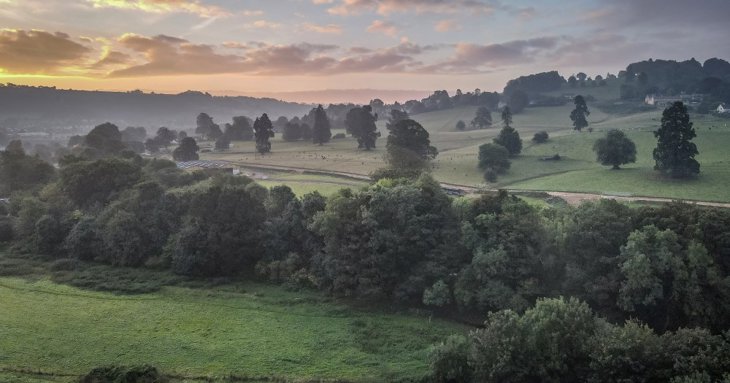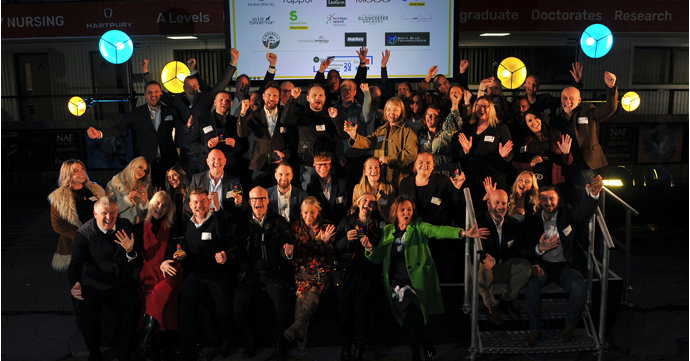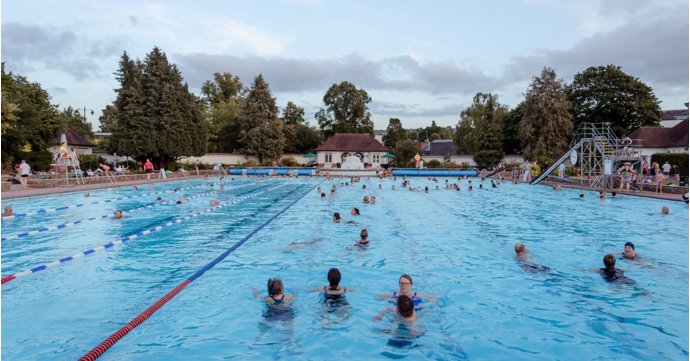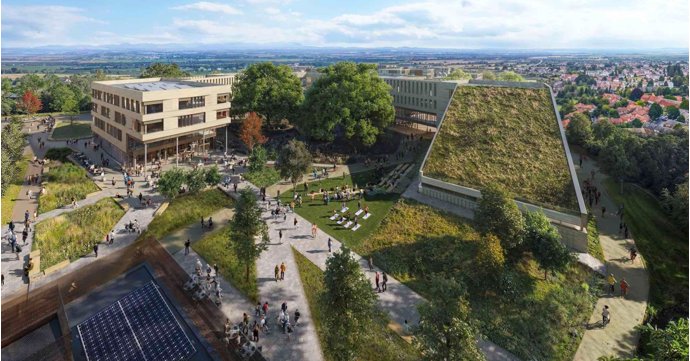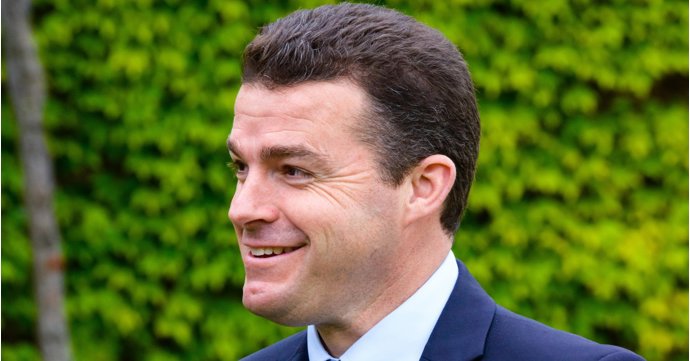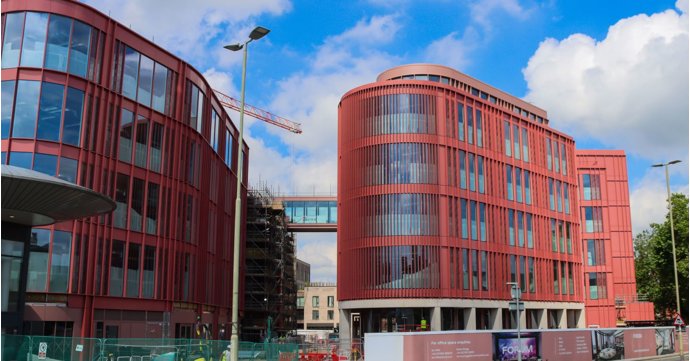Carbon emissions have been a hot topic for years now, with more and more businesses pledging to reduce theirs or even to become carbon neutral or net zero. But what exactly do these terms mean and and how does a business achieve them?
Jon Bonnar is managing director of Cotswold Energy Group, the Stonehouse-based company at the heart of some of the county's biggest decarbonisation projects. These projects are put into place once a company, or even a homeowner, decides it would like to reduce its carbon emissions.
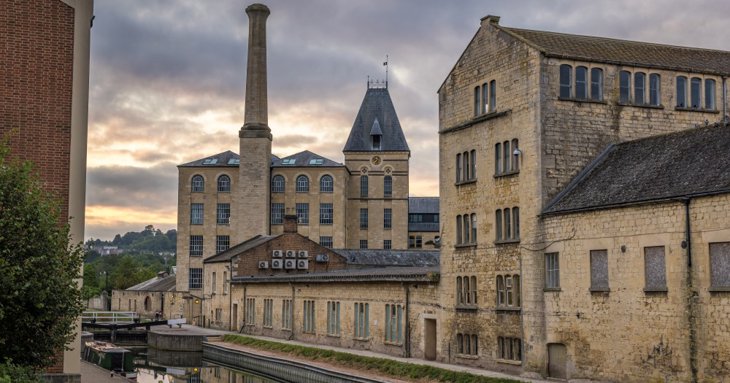
Bonnar explained: 'Decarbonisation is the process of reducing harmful carbon emissions that are released into the air from fossil fuels like gas boilers and petrol or diesel vehicles.
'Reducing carbon emissions has a positive impact on the climate and is imperative to reach carbon net zero targets.'
To explain some of these terms simply: to become carbon neutral means that a business is taking steps to remove the same amount of carbon dioxide that it emits during manufacturing or across the business's activities.
So, a company might produce a certain amount of carbon dioxide in its factory or offices for example, but it might work to reduce this in its workplace by switching to recycled and recyclable packaging. Or it might invest in off-setting it elsewhere, for example, by planting a number of trees per order or donating to environmental charity projects.
Whereas, becoming carbon net zero is a bit more large-scale. It means balancing the amount of greenhouses gases emitted by a household or company with the amount removed. So a company might run entirely on solar energy and use green transport such as electric bikes, and it may also plant trees for any other factors where it could use fossil fuels.
Bonnar said: 'Renewable energy is often the quickest, cleanest and most accessible method to reduce carbon emissions. For many people, in their own homes, this could take the form of solar panels, batteries and heat pumps; and the solution is much the same in a commercial environment for both small and large organisations.'
Cotswold Energy Group is helping some of the county's larger businesses reduce their footprints. One of its biggest projects to-date is the decarbonisation of three of Stroud District Council's sites — Stratford Park Leisure Centre, The Pulse Dursely leisure centre and the Museum in the Park. Work started this July 2023 and is due to continue until March 2024.
James Price, commercial director at Cotswold Energy Group said: 'Stratford Park Leisure Centre and the Museum in the Park are situated within Stratford Park in Stroud.
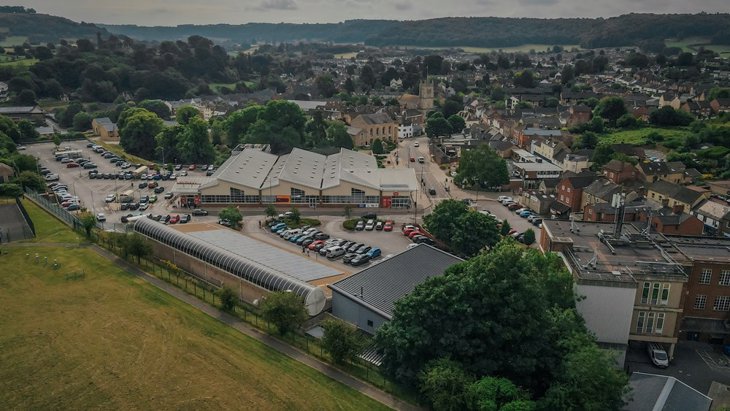
'We will be removing the existing gas boilers, which are at end-of-life and only operating at around 80 per cent efficiency, and replacing them with an air source heat pump system.
'The plant will be located centrally within the leisure centre footprint, with a supply then being fed to the museum — this allows us to minimise the impact to one of most historic buildings in the area.
'Within the Museum in the Park, we will be upgrading the controls system along with the emitters [items that use or emit fossil fuels] to ensure maximum performance. And to help reduce the building's overall load, we will introduce a mechanical ventilation with heat recovery (MVHR) system, too.'
An MVHR system works by extracting excess moisture in the air from a home or building, filtering it and then ventilating it back into the room.
Price continued: 'At the leisure centre, as well as upgrading emitters, we will also be adding MVHR to the studio spaces, along with an evaporative heating and cooling system to the main sports hall, which will not only help to decarbonise the building, but also improve the building users' comfort levels, too.'
Meanwhile, The Pulse Dursley, which was originally built in the 1980s, with an extension added in 2016 to provide a gym and class spaces, is getting similar treatment.
Price explained: 'The building is currently serviced via gas boilers which are also end-of-life and running at 80 per cent efficiency. As part of the project we will be removing these and replacing with an air source heat pump system, to supply the space heating, pool water heating and hot water generation.
'In addition to this, we will be upgrading the air handling unit which will help to reduce the overall space heating load of the pool area and improve not just efficiencies but also the air quality.
'Due to its unique shape and lack of available space, we will be installing the new plant on a gantry system externally to the building, allowing us to minimise the downtime as a result of the work and to maximise the available space within the building.'
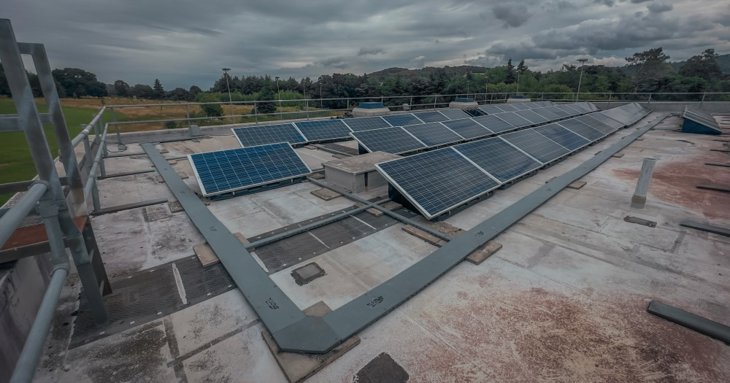
'These leisure centres are important buildings, both for the community and the council. They also represent a massive proportion of the council’s carbon emissions and, by removing fossil fuels in their entirety from both sites, we are making a big contribution to the council’s 'net zero by 2030' decarbonisation pledge.
'We hope that, by installing a significant low-carbon infrastructure, we will guarantee the viability of these buildings in the future and also provide energy security and independence by installing a heating system that can run from self-generated electricity through solar panels,' said Price.
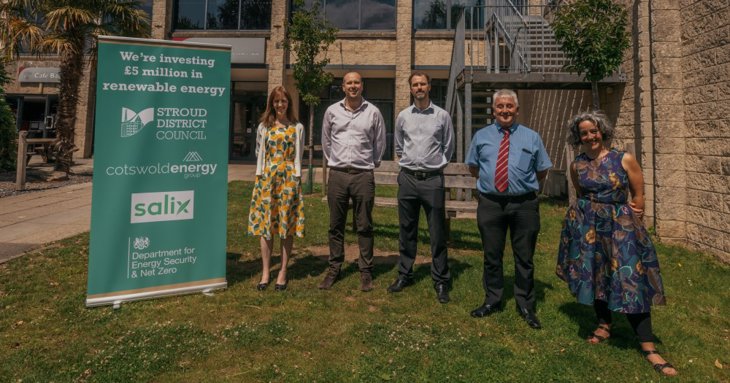
Cotswold Energy Group estimates that these improvements will help Stroud District Council save over 15,000 tonnes of carbon over the lifetime of the new systems. To put this into perspective, a flight from London to Dubai uses one tonne of carbon and a small petrol car travelling up to 7,000 miles per year uses one and a half tonnes of carbon each year.
Bonnar added: 'Every business, large and small, should be thinking about how they can measure and reduce carbon emissions. Some European countries like Switzerland have already introduced laws for all companies to become net zero by 2050 and it won’t be long before the rest of Europe follows suit.
'Everyone, whether a business or a homeowner, has a responsibility to make a positive contribution to our climate, and steps like installing renewable energy systems make a massive impact for future generations.'


